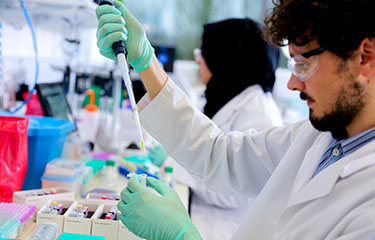Oxford, U.K.-based Oxford Nanopore Technologies and food authenticity company WeNou are collaborating to bring to market what they call the first test using nanopore sequencing to accurately identify shellfish DNA via a rapid test.
The technology will allow for the ability to identify shellfish as well as plants and insects from highly processed and complex food samples, Oxford Nanopore said in a press release.
“Using an ‘untargeted’ approach, the collaboration will result in a single DNA sequencing-based analysis for identification of multiple species in a sample that is more cost-effective and faster compared to current methods,” the company said.
After validation, the test will be used by companies to obtain industry accreditation to assess food and feed authenticity.
Fraud typically accounts for between 5 percent and 25 percent of all globally reported food safety incidents, Oxford Nanopore said. Food manufacturers and retailers typically perform spot tests on their raw materials to verify the safety of their food products, but current analytical methods for spot-testing either require multiple targeted tests and large capital investment into testing.
“Combining Oxford Nanopore technology with WeNou’s expertise, this collaboration will result in the sector’s first single test for the identification of multiple species in one food sample, detecting food fraud using a method that's more cost-effective and faster compared to current time-consuming tests,” Oxford Nanopore Technologies CEO Gordon Sanghera said.
In an initial WeNou study, the technology outperformed traditional sequencing workflow commonly used in the food industry, the company said.
“This preliminary work showed equivalent and highly reproducible results,” Oxford Nanospore said. “In addition, turnaround time was faster when used for meat and fish identification across multiple retail food samples including canned, fresh, frozen and other.”
Additionally, researchers found that the portability of nanopore sequencing created efficiencies through more decentralized sample testing.
WeNou CEO Sandra Chaves said there is no existing product that addresses “increasing demand for this type of cutting-edge solution. And, while there are currently no established guidelines in the sector, they are coming, Chaves said.
“We believe this solution has the potential to support better regulation in this field,” she said.
Researchers at Florida State University in Tallahassee, Florida, U.S.A. are also working to develop a rapid authenticity test that allows restaurants, marketplaces, and other seafood sellers to identify Atlantic white shrimp quickly and efficiently.
The SeaD test is being designed to generate on-site results at restaurants, markets, and other facilities in as little as two hours.
the test uses a lateral flow strip – or test strip – and a handheld PCR device to extract a DNA sample from the shrimp. After the test strip goes into the DNA sample solution, it produces a band on the strip confirming the presence of a gene-specific to Atlantic white shrimp, indicating a positive result, similar to a pregnancy test.
Photo courtesy of Oxford Nanopore Technologies







